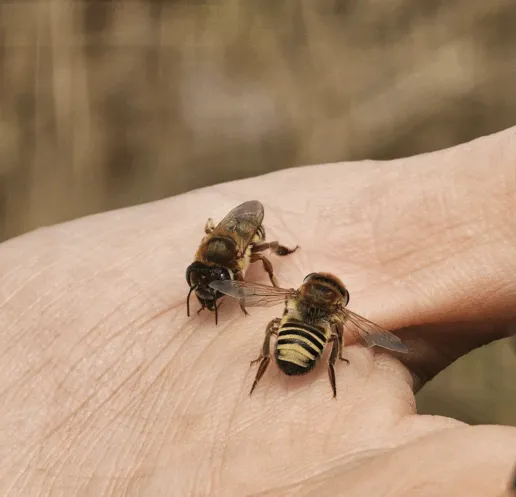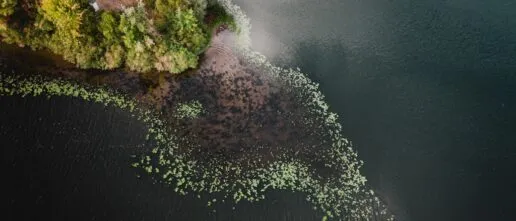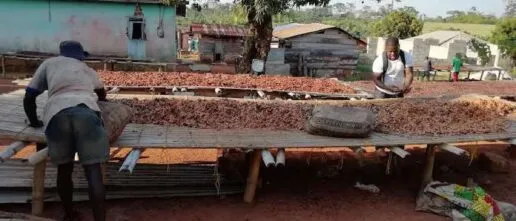By linking in-situ pollinator sampling and remote sensing technologies, this project aims to provide new insights into drivers of pollinator communities and interaction networks in nature recovery landscapes in Eastern Ghana, ultimately aiming to improve monitoring of biodiversity in areas of nature recovery at scale.
Species interactions underpin the functioning of ecosystems. Further, ensuring the stability of plant-pollinator interactions is critical to pollination service provision. By examining pollinator diversity and plant-pollinator interaction network structures across a human modification gradient, we aim to understand how nature recovery—through reforestation and agroforestry—may affect plant and pollinator diversity and interaction networks in African tropical forests.
Ultimately, the project’s objectives are to characterise pollinator diversity and plant-pollinator interaction networks across gradients of human modification, including cocoa plantations, in forests of Eastern Ghana, as well as to investigate the applicability of forest health metrics derived from earth observation (EO) to monitor pollinator communities and pollination networks at scale.
Expected project outputs include:
- Understanding of what EO metrics can be derived as proxies for the recovery of biodiversity (i.e., pollinator diversity) and ecosystem functioning (i.e., plant-pollinator interactions).
- Initial assessments of pollinator diversity and plant-pollinator interaction networks across a human-modification gradient in the Kwahu landscapes of Eastern Ghana.
- Evaluating the relationships between pollinator diversity, pollination network metrics, and cocoa crop yields to assess the role of nature recovery in pollination service provision.



